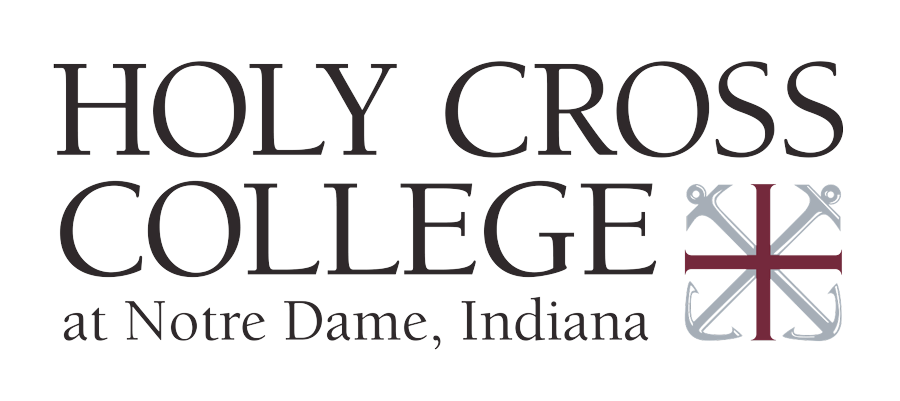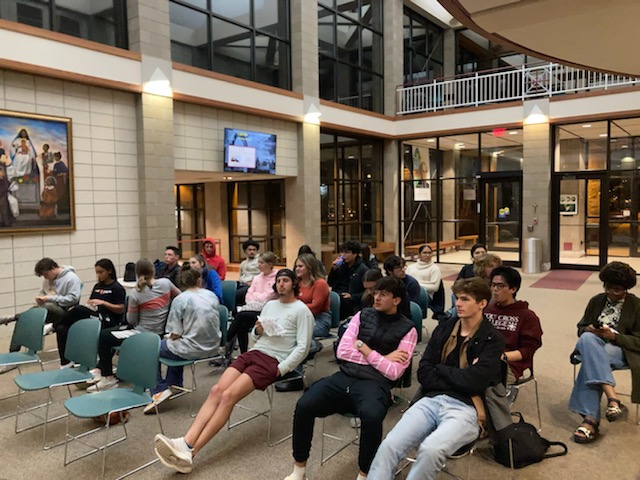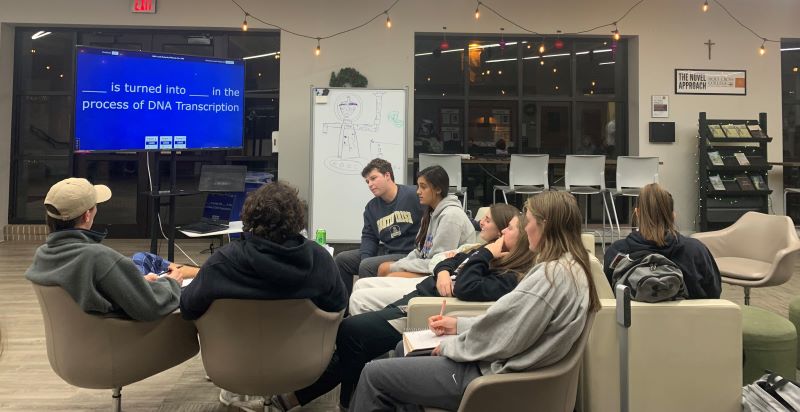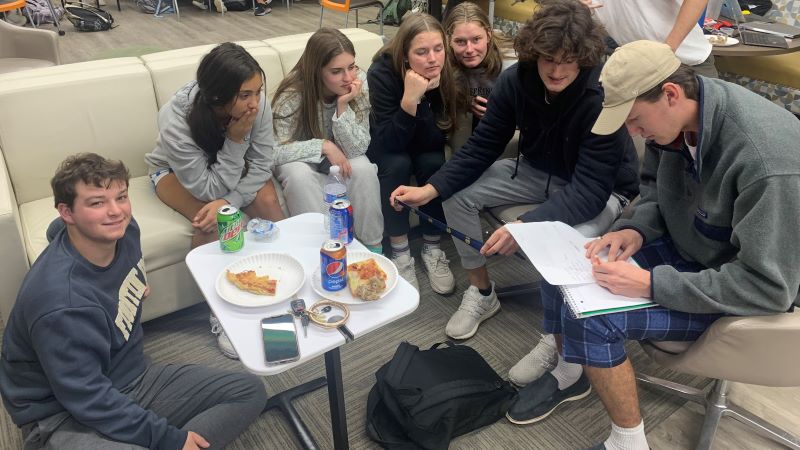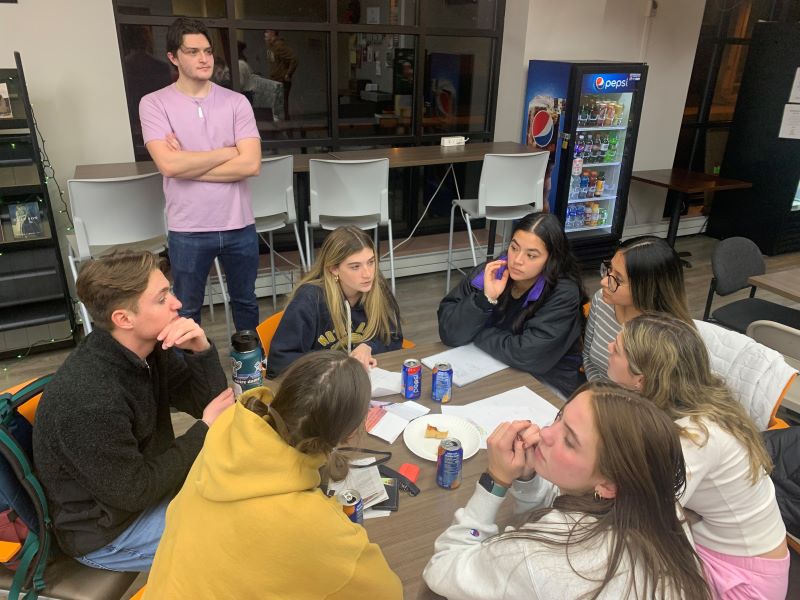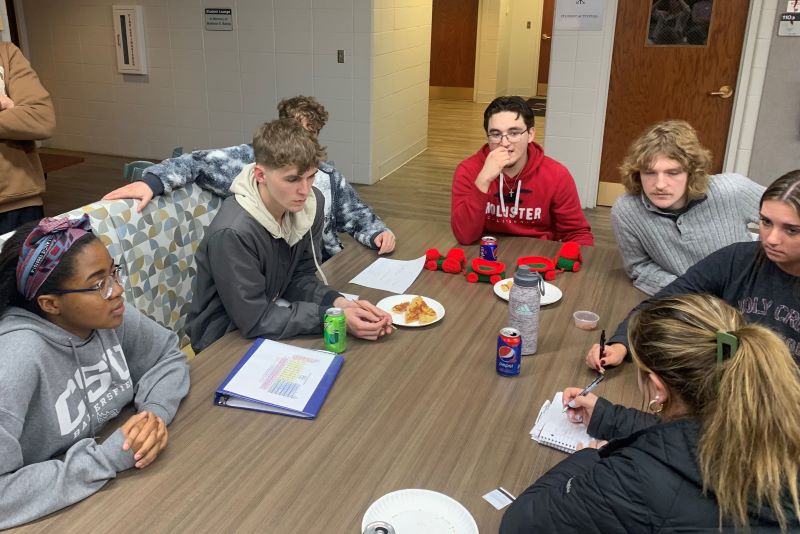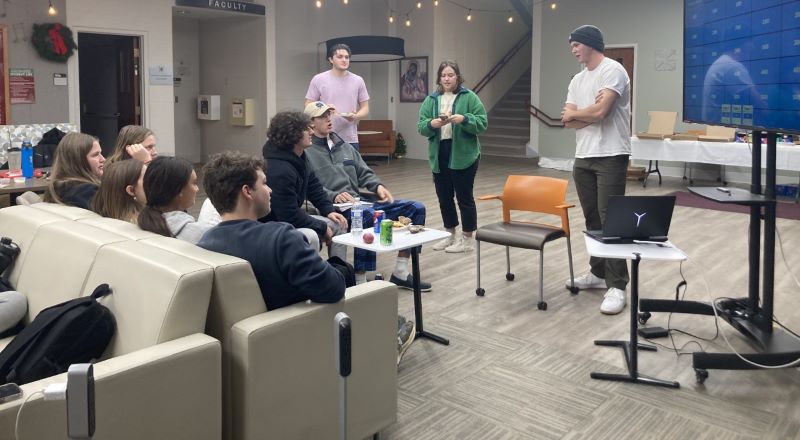They say, “it takes a village to raise a child,” and at Holy Cross College, the village consists of faculty, staff, and fellow students to make sure our campus inspires engaged scholars. Our student-focused curriculum, led by prestigious faculty, coupled with student mentorship has created a culture of student leaders building a strong academic community. This tradition of caring and support for one another, especially first year students, has ignited collaborations of success.
The Holy Cross College biology club, led by Luke Ruff (President), Annika Johnson (Events Planner), and Sierra Benge (Treasurer), Nolan Santacroce (VP), and Philomena Kempe (Secretary), spent the fall semester creating opportunities for students to learn more about the science program on campus. Along with assistance by Brother Lawrence Unfried, C.S.C., program director, the team engaged first-year students in resourceful events that continue academic growth beyond the classroom.
According to Professor Zhutian Zhang, Lecturer of Chemistry, the biology club has gone to great lengths to keep all students engaged and interested in the science programs at Holy Cross College. “What is especially amazing is the fact that the freshmen students who attended these events are not only from our biology program, but also from the Driscoll Scholars program, University of Notre Dame Reserve Officers’ Training Corps (ROTC), the Gateway Program, and some other majors.”
Study Skills Workshop
For the fourth year in a row, a Study Skills Workshop was offered for first-year students by members of the biology club.
In early November, the upper-class biology students formed an eight-person panel and shared their experiences with the freshmen about adjusting to college life, time management, and study skills in challenging STEM (science, technology, engineering, and mathematics) classes. They shared their own struggles in the past and how they have grown and thrived as college students in a strong Holy Cross College academic and social community.
Student feedback on the project included first-year students being touched when upperclassmen shared their struggles and experiences, appreciation for learning how to build schedule into their lives and improve time management skills for college life, gratitude for guidance on pre-studying, note-taking, build study groups, and the importance of regular study habits instead of cramming for tests.
“Coming to college, we suddenly have a lot of free time at hand and a lot more tasks and events to schedule. It is great to learn about time management,” noted students.
Jeopardy
In an effort to help students prepare for final exams, the biology club organized a Jeopardy Review Party filled with competition, food, and fun.
They asked the biology and chemistry professors for topics that were important to study, came up with questions, and organized a three-team competition. This has really boosted a passion for learning and brought the whole community together to support each other in these stressful final times. The freshmen really appreciated this opportunity to get to know each other better and get to know the upperclassmen. Of course, it was really fun.
Tutoring
The upper-class biology students are forming tutoring and TA (teaching assistant) teams to serve the professors and the students in and out of the classrooms and in the labs. Many struggling students are supported here, and the upper-class students gain valuable experiences in teaching, mentoring, and lab management skills. For example, for the general chemistry class, which is a challenging class for those that didn’t have a strong STEM background from high school, tutoring is offered five out of seven days each week including the weekend. Many of these tutoring sessions evolved into study groups, where peer support is offered, and a strong academic community is built.
Coming this spring, more club collaborations and activities are being planned. The science department faculty extend a huge thank you to this dedicated group of student leaders for all their hard work this semester and appreciate their leadership initiative to help first-year students achieve academic success.
